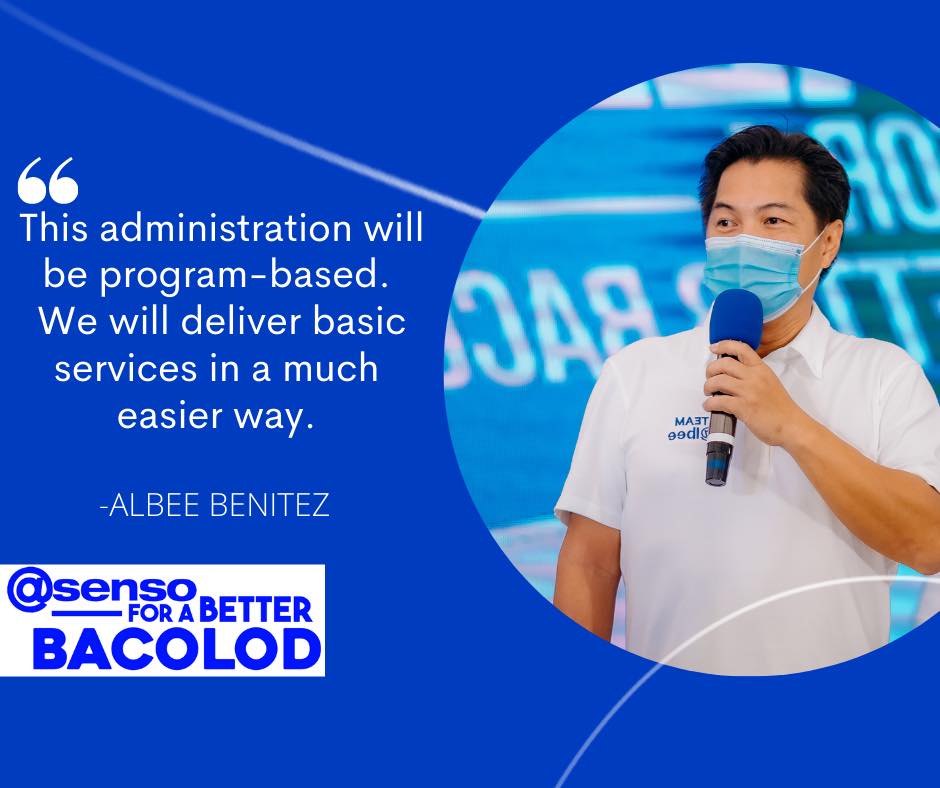Benitez to recommend direct importation of rice in NegOcc

BY CARLA P. GOMEZ/GILBERT P. BAYORAN
Monday, October 29, 2018
Rep. Alfredo Abelardo Benitez (Neg. Occ., 3rd District) yesterday said he will recommend the direct importation of rice by the Negros Occidental provincial government to bring down prices.
The president has actually relaxed restrictions on the importation of rice, he said.
“Maybe we can convince the governor to initiate importation by the province to bring rice directly to Negros,” he said.
This would probably bring down prices of rice to P27 to P30 a kilo, he said.
Meanwhile, Senator Cynthia Villar is in support of the imposition of suggested retail prices (SRPs) for rice and sugar, as recommended by the Department of Agriculture.
Villar, chairperson of the Senate Committee on Agriculture, who attended the MassKara celebration in Bacolod City Saturday, said she has long been pushing for SRPs on food commodities to soften the impact of the TRAIN (Tax Reform for Acceleration and Inclusion) law that has increased inflation rates in the country, as well as the prices of consumer products.
“Our problem is the existence of cartels that control the prices of goods,” Villar said, adding that "even if there is no actual shortage of products, prices are still high."
While prices of products are competitive, it should be reasonable enough, especially food products," she added. “It is unfair if we buy food at high prices, when there is enough supply.”
In Manila, Agriculture Secretary Emmanuel Piñol warned Saturday that traders caught selling rice at prices higher than the government’s SRP can lose their license, face jail time, and pay a fine of up to P1 million.
The government will start imposing the penalties on violators once the guidelines take effect, Piñol said during the launch of the rice SRP guidelines for Metro Manila and Greater Manila Area covering the provinces of Bulacan, Laguna, and Cavite.
National Food Authority Memorandum Circular AO-2018-10-002, dated Oct. 24, states that the guidelines will take effect 15 days following its publication in a newspaper of general circulation and upon registration with the University of the Philippines Law Center.
A national broadsheet published the guidelines Oct. 26, noted the NFA, that is now under the jurisdiction of the DA.
NFA Circular OCS-2018-J-01 also classified rice as either regular-milled, well-milled, premium, or special.
“There will no longer be names like ‘angelica’ and ‘sinandomeng’ for rice sold to the public,” said Piñol, who signed both circulars as chairperson of the NFA Council.
Excluded from SRP coverage are special rice varieties, such as those produced in the uplands, he said.
The SRPs for local regular-milled, well-milled, and premium rice are P39, P44 and P47, respectively, based on NFA Circular OCS-2018-J-01.
The circular also said the SRP for imported well-milled rice is P39, although NFA Quality Assurance Division assistant chief, Mario Andrada, said there’s no imported regular-milled rice.
Andrada noted that imported premium rice has either 2 percent broken grains (PG1) with an SRP of P43, or up to 5 percent broken grains (PG2) to be sold at P40.
Piñol said the government has set the SRPs for rice to help protect consumers from profiteers. In setting the SRPs, he said the government considered not just production and related costs but profit as well, so rice traders must not over-charge consumers.
The rule of thumb is to multiply palay price by two to determine the selling price of rice, he said. “That means if traders bought palay at P18 per kg., the selling price must be P36 only," he said.
Villar, on the other hand, said the move of the government to suspend the excise tax on fuel to bring down inflation is a welcome development for her.
“Commodities are affected by prices of oil in the international market because of transportation cost," she added.
Under the TRAIN law, Villar said that if the price of oil reaches $80 per barrel, then the excise tax can be suspended.*WITH PNA
@senso for A BETTER BACOLOD
Ang isa sa akon mga handom para sa Bacolod.


Ako ang kapitan sg sini nga barko. Indi ini magkadto sa wala ukon sa tuo, kundi derecho sa direksyon sang pagbag-o sang gobyerno para sa kaayuhan sang Bacolodnon.


